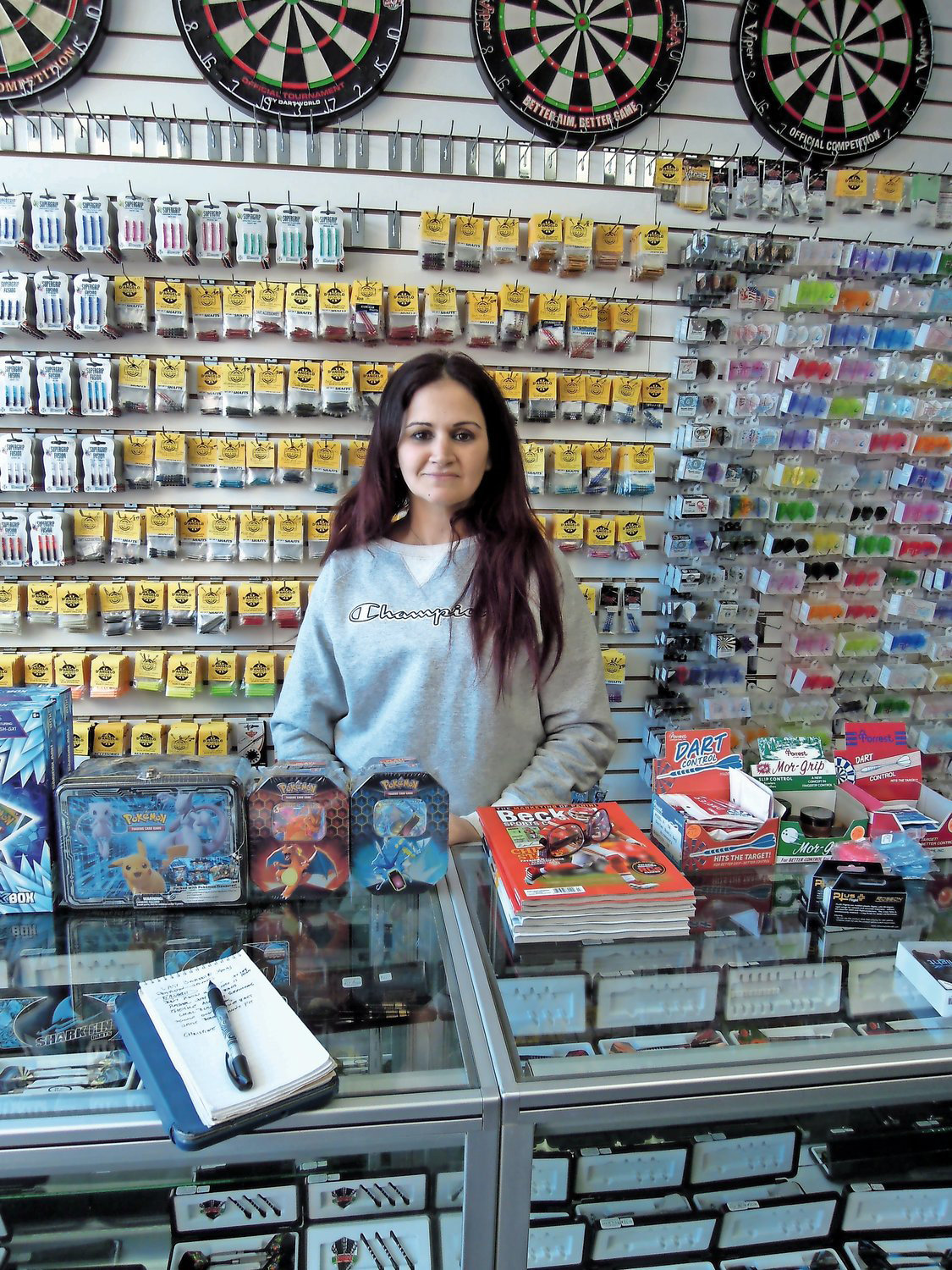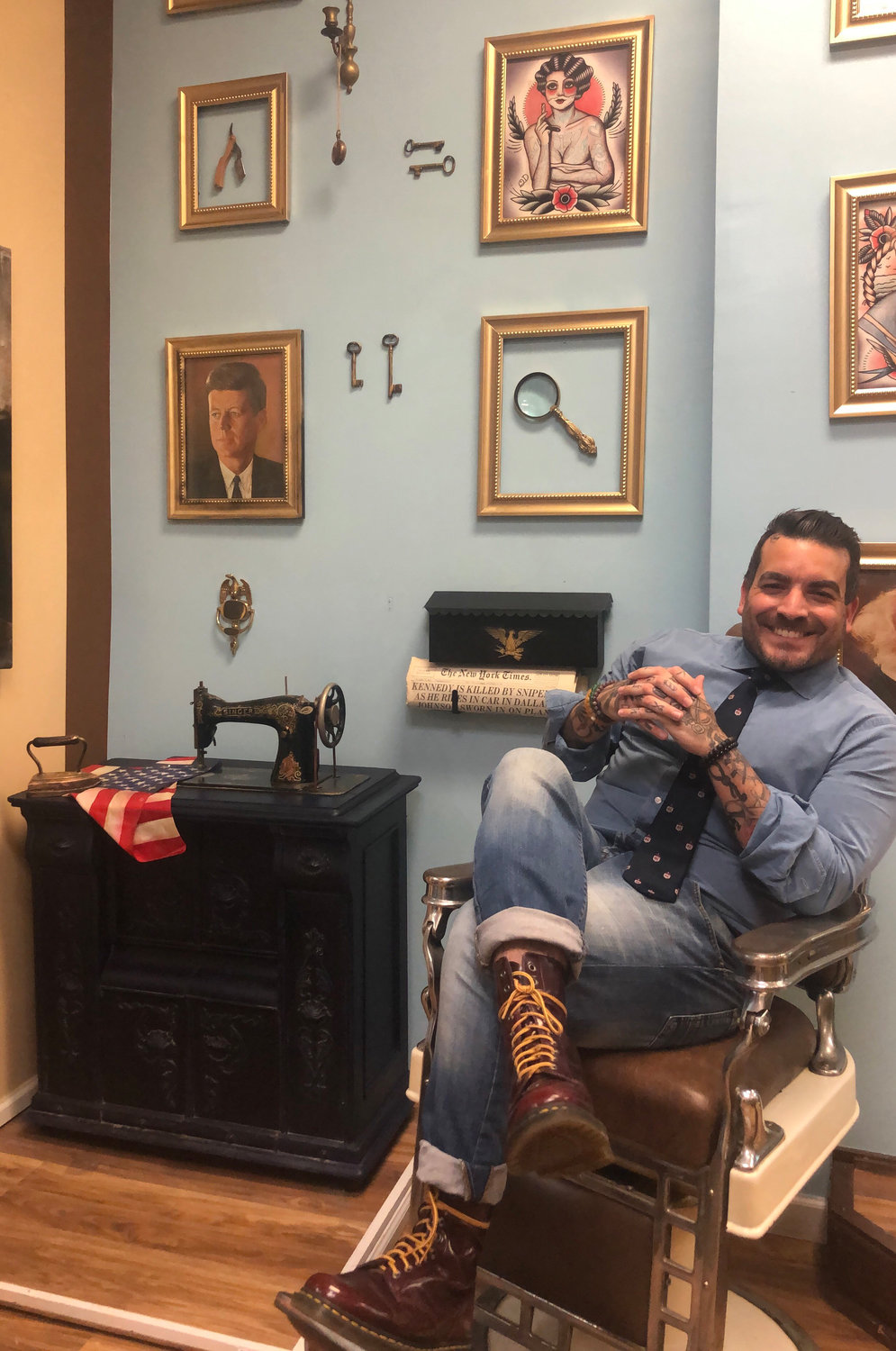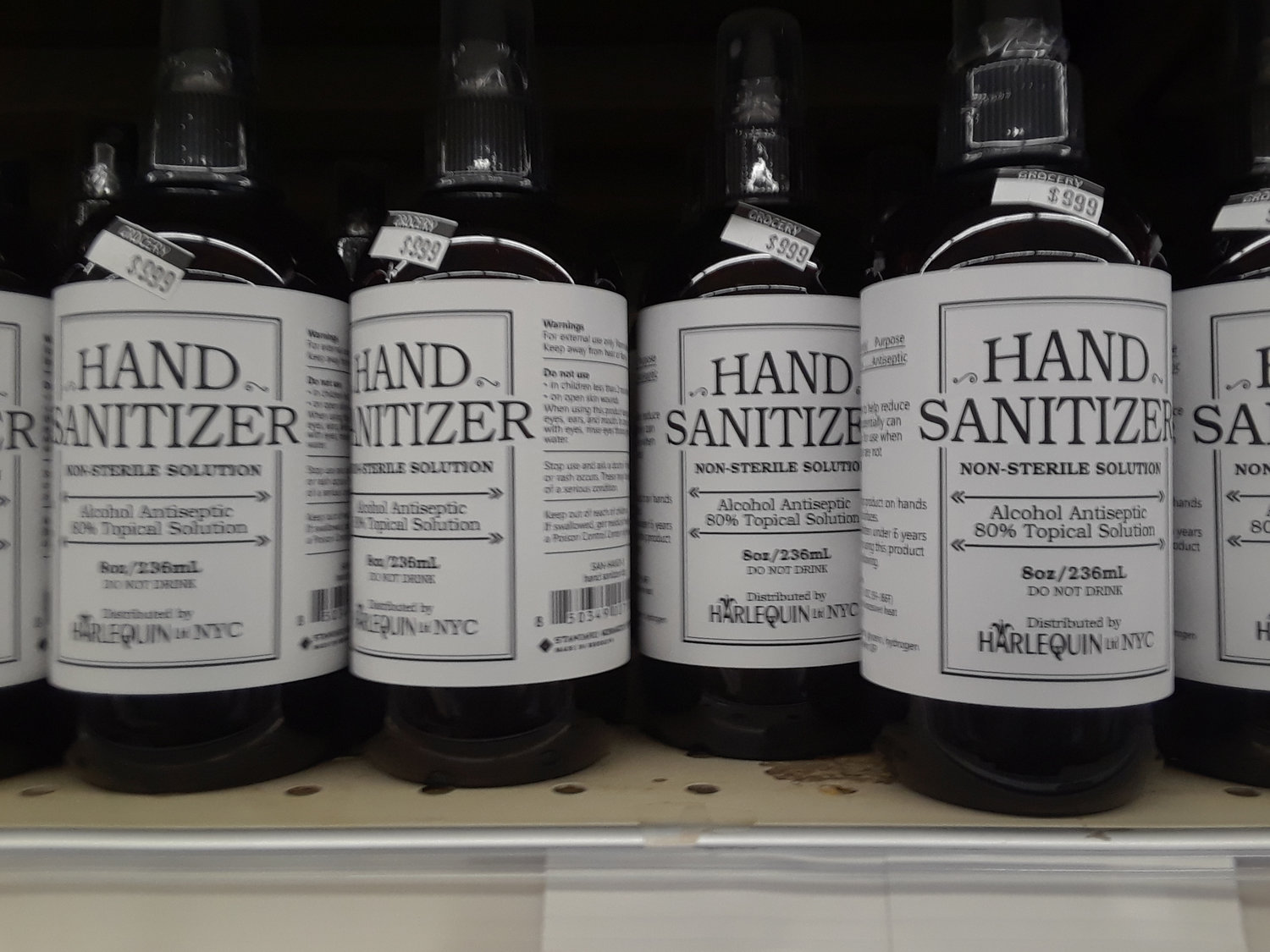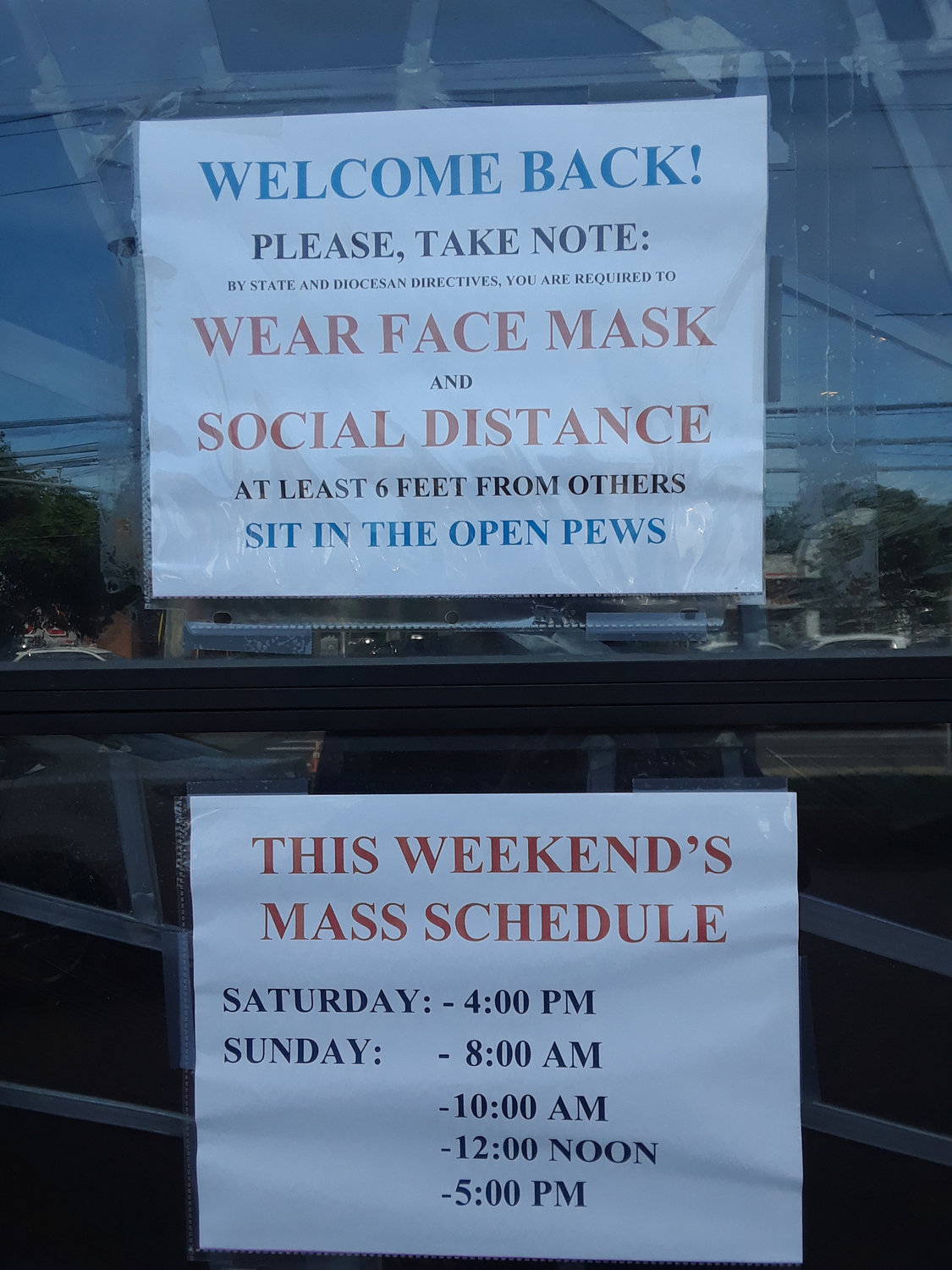Phase 2 off to smooth start
But social distancing limits revenue for some
More Seaford and Wantagh businesses opened last week as Phase 2 of the state’s reopening took effect, and, as with Phase 1, the results were mixed.
Businesses qualified to reopen under Phase 2 included barbershops, financial advisers, insurance and real estate brokers, storefront retail establishments and outdoor dining. Houses of worship, which were allowed to open under Phase 1, saw the number of permissible attendees increase to 25 percent of capacity — up from a total of 10 clergy and worshippers under Phase 1.
Some businesses, like financial planners and real estate brokers, were able to operate under earlier guidelines even while their offices remained closed. “We were allowed to show empty houses,” said Laura Dupkin Memisha of The Realty Advisors in Wantagh, which mainly represents clients in Seaford, Wantagh and Levittown.
She added that since brokers do much of their work in the field, rules on social distancing are less of a burden.
Tony Smith, of Wantagh’s SAS Realty, said that in addition to showing empty houses, his brokers did much of their work online, through virtual house tours. “It’s a great way to do business,” Smith said, “and I wouldn’t be surprised if a lot of us in this business start doing more of it, even after the crisis is over.”
“I’m closing on a property this week where the buyer has never even seen inside the actual house,” Dupkin Memisha said. “The first time they step into the house will be after they own it.”
The market is unseasonably hot, she said, due to unusually low inventories. “In Seaford, we have 43 properties listed, and 41 in Wantagh,” she said. “That’s more like what we’d expect to see in the winter.”
While Dupkin Memisha said that many of her customers were local — “even Wantagh to Wantagh and Seaford to Seaford,” she said, referring to school districts — Smith said he saw people moving both into and out of Nassau County. “People are moving from the city and Jersey,” he said, “but Tennessee is hot,” and West Virginia and North Carolina were among the preferred destinations.
Still, some limitations did apply under Phase 2. For example, Smith said, “We can only let one person into a house at a time.”
His perspective on the market was a bit more measured. Business has remained steady throughout the pandemic, although slower than usual, “and it’s going to be slower for a while,” Smith said. “A couple of weeks, maybe, then I think it’ll pick up again.”
As in other commission-dependent businesses, brokers receive payment only when their deals close. And as independent contractors, they were not generally eligible for some of the support mechanisms available to salaried employees, such as the federal government’s Paycheck Protection Program or the pandemic unemployment bonuses paid by the New York State Department of Labor, with federal support.
Other businesses struggled, as the requirements of social distancing and numerical limits cut into already tight profit margins. “We can only have about half the normal number of [customers and employees] in the shops” because of social distancing, said Edward Dennehy, who co-owns Mad Men Bespoke Tailors and Barbershops with his former wife, Jessica. With locations in Wantagh, on the border with Seaford, and Williston Park, the shops had to furlough all their workers during the three-months shutdown.
“They stylists are independent contractors — basically, self-employed — so they couldn’t claim any unemployment benefits,” Dennehy said. And because the partners do not expect their businesses to reach pre-pandemic levels anytime soon, demand will not enable them to bring back their crews at anything approaching full employment.
“Altogether, we’re down to about 30 percent of our normal business because of social distancing requirements,” he said. And as barbershops maintain a freeze on the beard care end of their business, margins are cut even further. “Beard care is about 35 percent of our barber business,” Dennehy explained.
Some businesses that were permitted to open in Phase 1 struggled to understand the rules governing the reopening. D’Angelo’s Sporting Goods, on Wantagh Avenue, took an extra two weeks to ensure that it was fully compliant with state regulations before opening to customers. “We had seen [the lockdown] coming, so we were somewhat prepared,” said Christine D’Angelo, who owns the business with her husband, Mike. “We stocked up on inventory, so we were still able to help some of our regular customers.”
D’Angelo said she made personal deliveries to the store’s regulars, augmented by the occasional curbside pickup.
The store specializes in competition darts and pool and billiards accessories. It also does a lively business in baseball cards, geared toward serious collectors.
“We’ve been OK, financially,” D’Angelo said, although she said she was relieved to be headed toward more normal business conditions. Ultimately, the store will be able to do much of its business online, but “the website is still being built,” she said.
Five of New York’s seven regions have already begun operating under Phase 3. If conditions warrant, Nassau County Executive Laura Curran has said she expected Long Island to be ready to implement Phase 3 by June 26. Since it primarily benefits the hospitality industry — dine-in service in particular — this would be good news for the area’s restaurants and diners. Hotels will be able to serve diners in their restaurants as well.
Some states have seen increases in the number of positive tests for Covid-19 as they have reopened. According to the Associated Press, rolling seven-day averages have picked up significantly in 21 states, including Arizona, California, Florida and North Carolina.
So far in New York, however, “All signs are positive,” Gov. Andrew Cuomo said before the reopening of Phase 2. “They’ve made great progress.” He was clear, however, that any significant spike would be met by an immediate rollback to previous, more stringent conditions.

 44.0°,
Mostly Cloudy
44.0°,
Mostly Cloudy 











